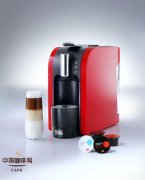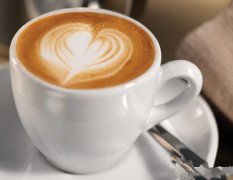What is caffeine? Use and definition of caffeine

Brief introduction of caffeine
Caffeine is a xanthine alkaloid, a central nervous system stimulant that temporarily repels drowsiness and restores energy. Caffeinated coffee, tea, soft drinks and energy drinks sell very well, so caffeine is also the most commonly used psychotropic drug in the world. In North America, 90% of adults use caffeine every day. Many natural sources of caffeine also contain a variety of other xanthine alkaloids, including cardiotonic theophylline and theobromine, as well as other substances such as tannic acid.
Caffeine for use
At present, it is known that the physiological responses of caffeine to the human body are as follows:
It can effectively fight against free radicals that threaten our health, and free radicals are the main cause of many diseases such as cardiomyopathy, arteriosclerosis, stroke, emphysema and Parkinson's disease. Too much free radicals will affect the metabolism of the body, destroy cells and then affect organs and tissues. Cardiovascular protection: contains high-ingredient polyphenol compounds, which are powerful antioxidants, which can delay the oxidation of LDL by up to three times, dissolve blood clots and prevent the formation of blood clots; coffee can also enhance vasoconstriction and avoid vascular dilatation and headache. In addition, a small amount of coffee can also enhance myocardial contractility, promote blood circulation and prevent cardiovascular disease. Refreshing and refreshing: it can stimulate the central nervous system of the brain, prolong the awake time of the brain, make the mind clear, sharp, and focused, which can improve the efficiency of work and study. Anti-melancholy: a small amount of caffeine can cheer people up, feel happy, and relieve depression. Weight control: caffeine can increase the rate at which the body consumes calories. A study found that 100mg caffeine (about 1 cup of coffee) can accelerate fat decomposition, increase the body's metabolic rate by 3% to 4%, increase heat consumption and drink in moderation. Weight loss. Promote digestion: caffeine stimulates the sympathetic nerve and increases gastric juice secretion. If you drink it in the right amount after a meal, it will help digestion.
Diuresis: coffee has a diuretic effect, which can increase the amount of urination, thus increasing the number of times to go to the toilet. Improve constipation: coffee can stimulate gastrointestinal hormones or peristaltic hormones, produce laxative effect, can be used as a rapid laxative.
Reduce the risk of colorectal or rectal cancer: coffee contains natural antioxidants.
Pain relief: when caffeine is used as a drug, it can enhance the effect of some painkillers. Enhance physical agility: caffeine also helps to lower the exercise threshold during exercise, increase body agility, and enable athletes to create better results. Reduce the risk of gallstones: a new study from the Harvard School of Public Health found that people who drank 2-3 cups of coffee a day were on average 40% less likely to get gallstones than those who never drank them. In addition, the tannic acid contained in coffee has the function of astringency, hemostasis and odor prevention. (this article is reproduced)
Important Notice :
前街咖啡 FrontStreet Coffee has moved to new addredd:
FrontStreet Coffee Address: 315,Donghua East Road,GuangZhou
Tel:020 38364473
- Prev

What is drip coffee? One of the easiest ways to get started with coffee
What is drip coffee? Drip filter coffee is one of the easiest ways for beginners to brew delicious coffee, and it is also one of the best ways to taste individual coffee. It tastes clean and refreshing, like the flavor of siphon coffee, so it is favored by the Japanese and is suitable for the needs of home, office and simplicity. The operation is simple and convenient, the utensils are simple and the price is low, and it is easy to get started.
- Next

What is fancy coffee? Coffee with seasonings and other drinks
Fancy coffee is coffee with seasonings and other drinks. Fancy coffee is not just a flower-drawn coffee. In fact, fancy coffee does not need to pull flowers, pull flowers only to make the shape of the coffee a little more beautiful, but also can not pull. Fancy coffee is nothing more than individual coffee with other ingredients such as milk, chocolate sauce, wine, tea, cream and so on. Fancy coffee can't either.
Related
- Beginners will see the "Coffee pull flower" guide!
- What is the difference between ice blog purified milk and ordinary milk coffee?
- Why is the Philippines the largest producer of crops in Liberia?
- For coffee extraction, should the fine powder be retained?
- How does extracted espresso fill pressed powder? How much strength does it take to press the powder?
- How to make jasmine cold extract coffee? Is the jasmine + latte good?
- Will this little toy really make the coffee taste better? How does Lily Drip affect coffee extraction?
- Will the action of slapping the filter cup also affect coffee extraction?
- What's the difference between powder-to-water ratio and powder-to-liquid ratio?
- What is the Ethiopian local species? What does it have to do with Heirloom native species?

